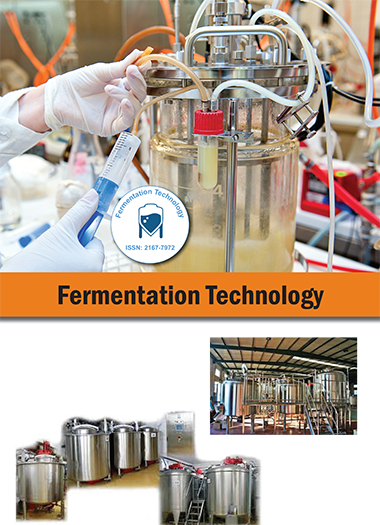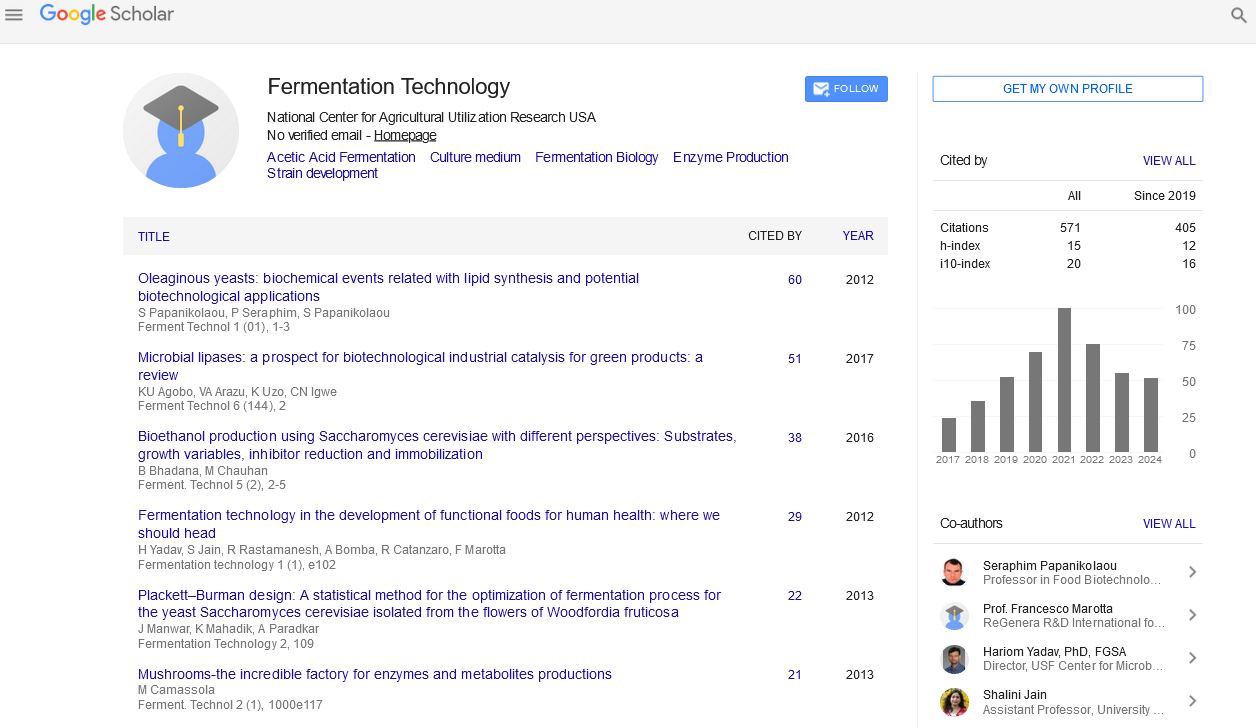Indexed In
- Open J Gate
- Genamics JournalSeek
- Access to Global Online Research in Agriculture (AGORA)
- RefSeek
- Hamdard University
- EBSCO A-Z
- OCLC- WorldCat
- Publons
Useful Links
Share This Page
Journal Flyer

Open Access Journals
- Agri and Aquaculture
- Biochemistry
- Bioinformatics & Systems Biology
- Business & Management
- Chemistry
- Clinical Sciences
- Engineering
- Food & Nutrition
- General Science
- Genetics & Molecular Biology
- Immunology & Microbiology
- Medical Sciences
- Neuroscience & Psychology
- Nursing & Health Care
- Pharmaceutical Sciences
Amino-acid profiles of yeast autolysates
World Congress on Beneficial Microbes: Food, Pharma, Aqua & Beverages Industry
August 25-27, 2015 Valencia, Spain
Marta Dudkiewicz, Joanna Berlowska, Dorota Kregiel, Agata Czyzowska, Maria Balcerek and Katarzyna Pielech-Przybylska
Lodz University of Technology, Poland
Scientific Tracks Abstracts: Ferment Technol
Abstract:
The interest in the production of yeast extracts and their use as food additives has been growing in the recent years. Yeast extracts can be obtained from pure culture or from post fermentation cultures. Free amino acids in the extracts are known to have a major influence on flavor. Yeast hydrolysates with higher concentrations of valine, leucine, threonine and phenylalanine, as well as of sulfur amino acids (cysteine and methionine), could enhance flavor. This work presents the results of a study to determine the effect of Quillaja saponaria saponins on the autolysis of industrial yeast strains. Saponin is a relatively unconventional inductor for yeast autolysis. Cells treated with saponin retain sufficient integrity for rapid equilibration. The proposed method also has the advantages of relatively low cost, low added salt and well-documented health benefits. The distillery yeasts (Saccharomyces cerevisiae (Lesaffre) and Kluyveromyces marxianus LOCK0026) were used as pure cultures in the study, as well as post-fermentation mixed cultures. Cell suspension density was estimated using a Muse Cell Analyzer. The concentration of proteins was measured using Direct Detect system. Free amino nitrogen concentration (FAN) was determined based on the colour reaction with ninhydrin. The concentration of ammonia nitrogen was measured colorimetrically with Nessler's reagent. Free amino acids in the autolysates was measured using the Pico-Tag method. The presence of saponin during autolysis resulted in a substantial increase in the concentration of nitrogen compounds, in comparison to tests without this agent. Post-fermentation biomass had more interesting amino acid profile than aerobically propagated monocultures.
Biography :
Marta Dudkiewicz graduated from Lodz University of Technology (LUT) with BSc in Technical Microbiology and MSc in Fermentation Technology. The subject of her MSc thesis, which she completed in 2014 was “The utilization of sugar beet pulp hydrolysate for lactic acid fermentation”. Currently, she is employed by Institute of Fermentation Technology and Microbiology (LUT), working as a scientist and researcher and doing research for Applied Research Programme – Project PBS1/ B8/3/2012. She is a co-author of several articles which are going to be published soon.
Email: marta.dudkiewicz@p.lodz.pl

